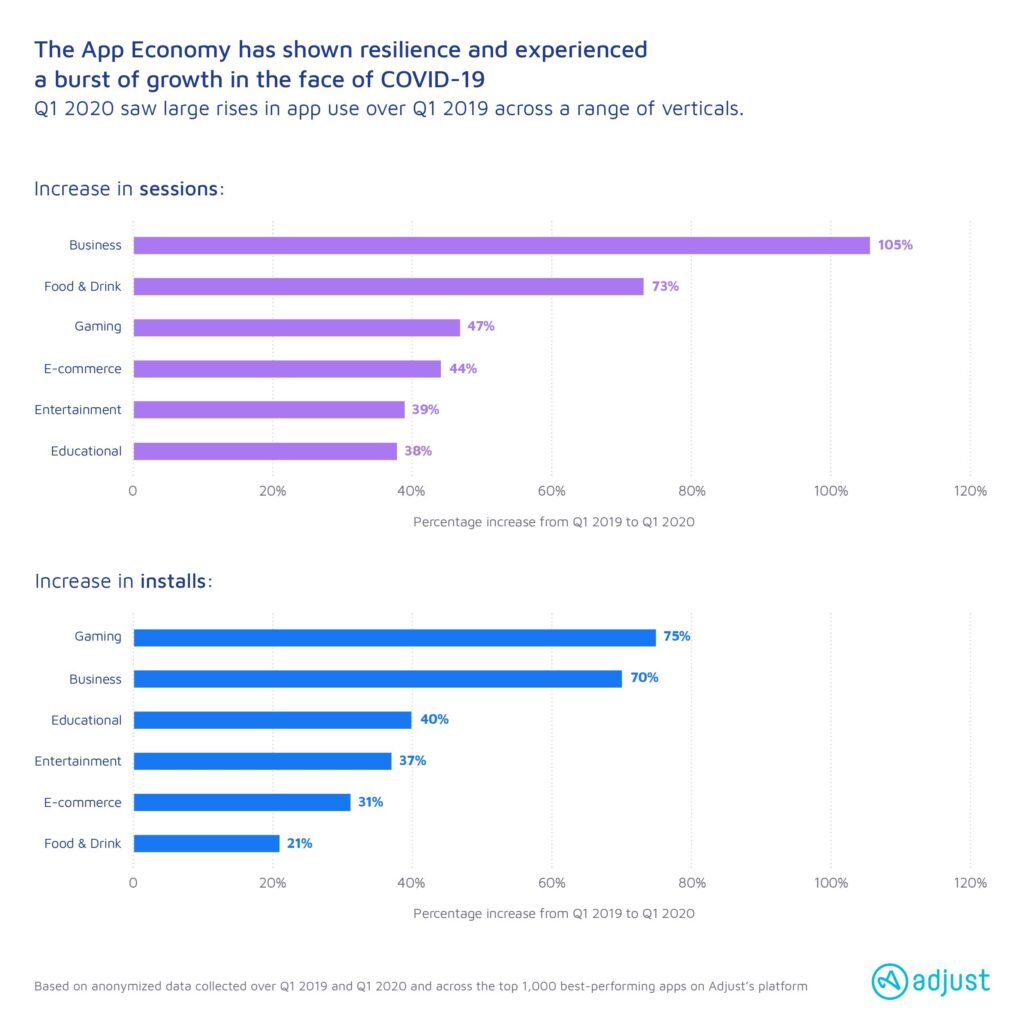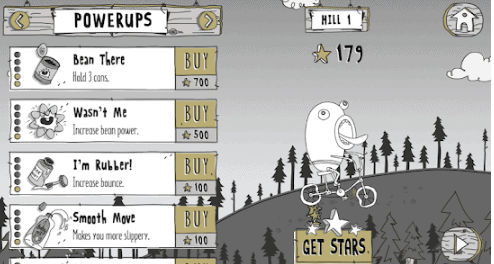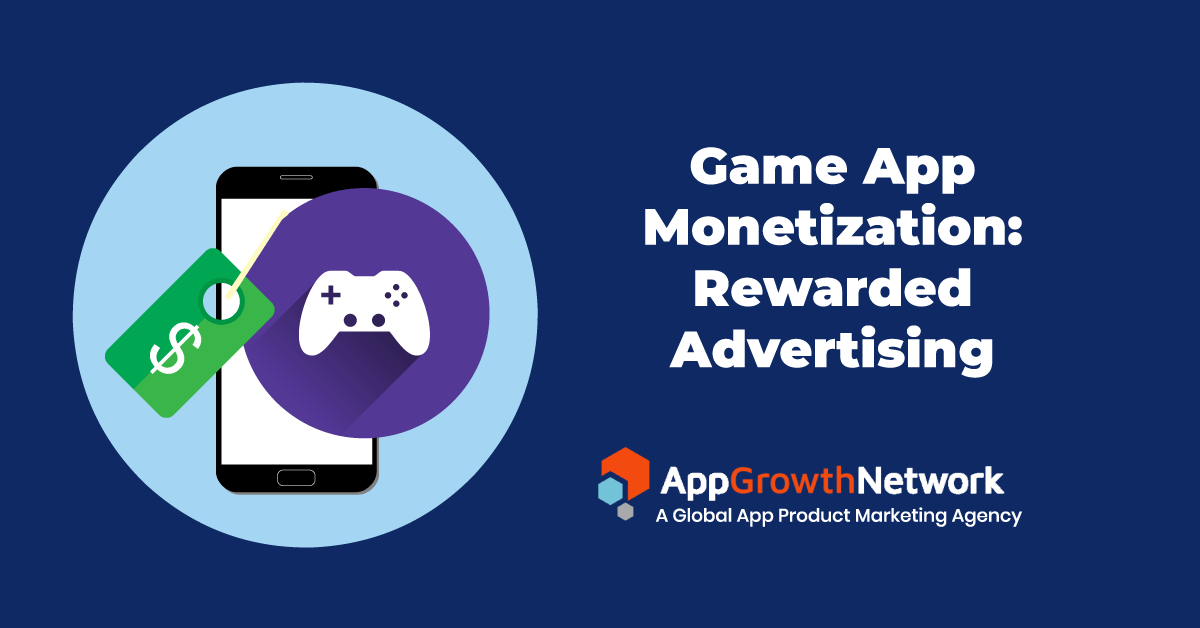Top Trend for Game App Monetization: Rewarded Advertising
If there’s an economy that didn’t suffer much during the tragedy of the COVID-19 pandemic, it’s the app industry. In Q2 2020, global consumer spend on mobile apps reached a record of $27 million U.S. dollars, representing $4 billion year-over-year growth.
As we narrow in on specific verticals, we can see where most of the growth came from. One of the most robust was gaming. As reported by Adjust, from Q1 2019 to Q1 2020, gaming saw a 47% in sessions and a whopping 75% increase in installs – the highest of all categories.
- How to monetize a gaming app
- Why Rewarded Advertising is trending as an app monetization strategy
- Choosing how to monetize your gaming app
Whats in this article

As for the monetization of gaming apps in the long term, however, the effects of the pandemic are less optimistic. As stated by our own CEO, Fouad Saeidi, in a recent Forbes interview – while the lockdown made gaming apps more coveted – the pandemic is also “diminishing the purchase power of users.” This is especially the case in growth markets like Brazil and India. For this reason, a mobile game app’s dependence on download payments or in-app purchases may need some re-evaluation.
How to monetize a gaming app
Traditionally speaking, the top 3 most common ways to make money from a gaming app are the following:
1. In-Game Ads
The idea here is straightforward: the app developer earns revenue from ads that play during game playtime and users can play the game for free. In-app videos get a higher click-through rate than banners, so the in-game ads monetization approach can yield positive results.
2. In-Game Purchases
If you are a young studio or indie game developer, your best bet is to make your game free to download. Once a user is hooked on the game, they’ll be more likely to complete a small in-app purchase to get an extra life, unlock a special level or buy game-enhancing extras as shown in the Doofus Drop game example below. Little by little, these small purchases can add up to a sizeable amount – as long as people are willing to spend!

3. Pay to Download
Some serious mobile gamers would rather pay upfront for a game they know they love and avoid in-app purchases and ads from the get-go. But this approach is usually successful only with well-established developers that already have a large and loyal fanbase. Unless you have this exposure, the paid approach won’t likely be your best monetization strategy.
Why Rewarded Advertising is trending as an app monetization strategy
While the traditional app monetization strategies outlined above are the most commonly used, economic demands are making way for an evolving monetization trend: rewarded advertising. The idea of rewarded video – an approach that rewards users with game freebies and benefits – is not entirely new. But the idea is catching on with more publishers as they realize the value of this model.
It’s a win-win for all sides. Publishers can offer more value to a massive group of players and decrease their dependence on paid games or in-game purchases, while players gain access to special perks immediately without spending a penny.
There are ad models, like Playtime by adjoe, that serve users ads that benefit more than one game (even by different publishers) at a time. Playing an advertised game – which can be viewed as the competition or the destination game – earns the user virtual currency in the host game. Instead of competing for users, publishers are seeing the value in sharing the wealth – by adding value to the original game and the destination game, both get a boost in retention and monetization.
As summarized by our CEO, “in the hard times ahead, this is a real game-changer.”
Choosing how to monetize your gaming app

There’s no “right” answer here. As we’ve mentioned, the good news is that mobile gaming has shown resilience and growth despite turbulent outside factors. When deciding which model to use to make money from your app, keep in mind that the size of your enterprise matters. If you’re an indie publisher with a limited budget, your strategy will likely be different than that of an established publisher with deeper pockets.
But all game publishers – small or large – need to keep post-COVID predictions in mind. If purchasing power continues to diminish, more traditional monetization methods like in-app purchases need close evaluation. As unpredictable times continue, we anticipate that we’ll be seeing more innovative models for ad revenue and rewarded advertising.
If you need any help or advice on how to tackle a monetization strategy that’s right for you, let us take a look and give you a hand. We’re just one short message away!
Related Articles
For Wellness apps, the most challenging approach is the conversion of the user from passive to active. [...]
In the realm of App Store Optimization (ASO) for iOS applications, a relatively untapped yet highly effective strategy [...]
In today's competitive app market, it's crucial for app developers and marketers to reach a wider audience and [...]










